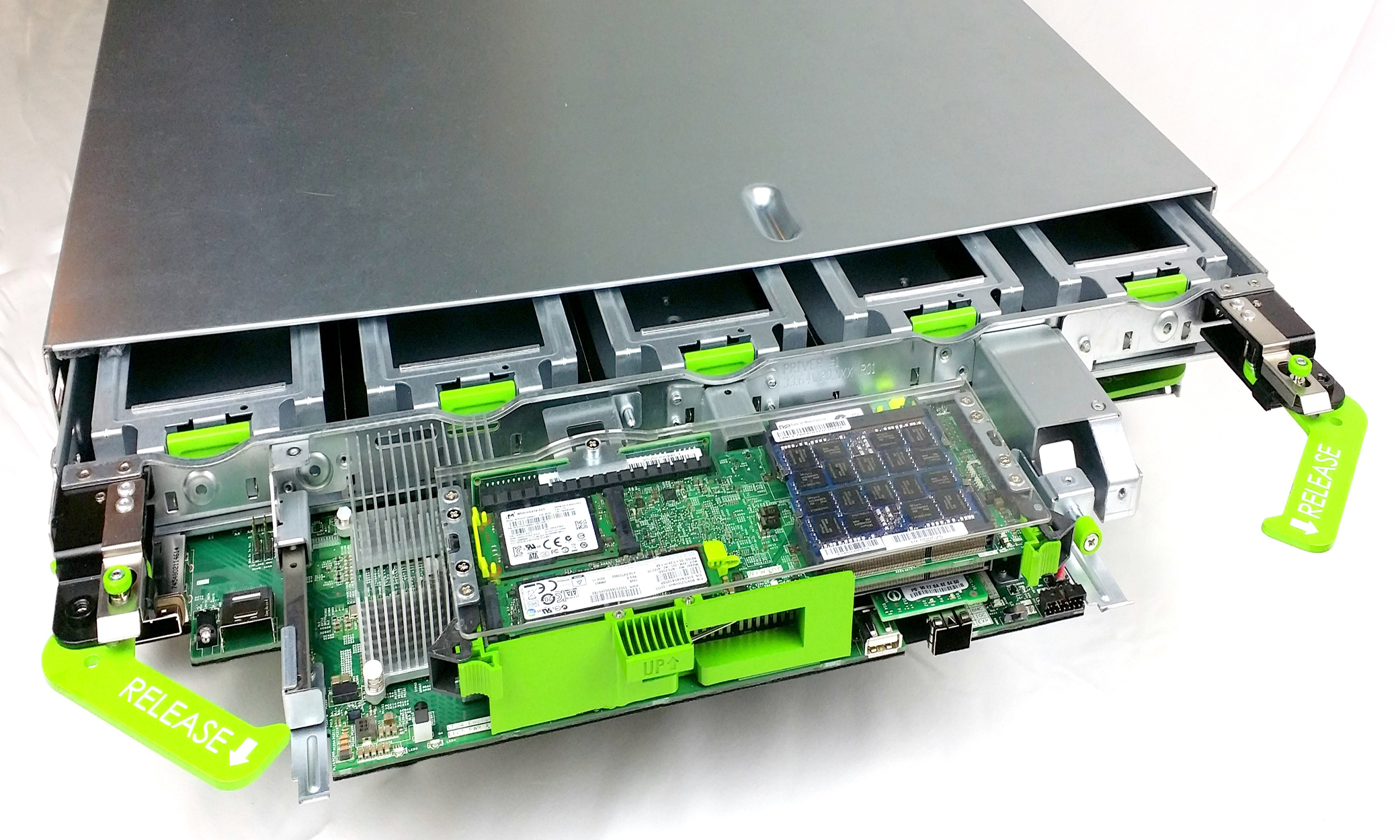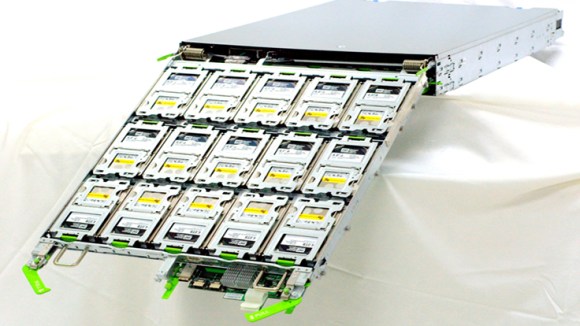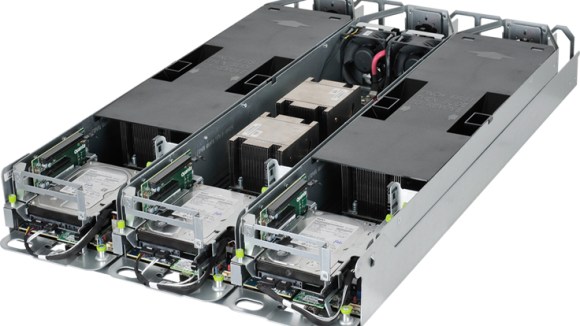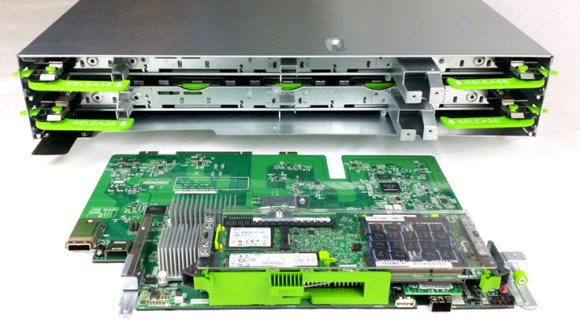In 2011, we helped launch the Open Compute Project (OCP), a rapidly growing community of engineers and companies around the world whose mission is to foster more openness, more innovation, and a greater focus on scale in the development of infrastructure technologies. Today, the community continues to be committed to working in the open, and that includes making OCP technologies more accessible to potential adopters. With that in mind, we built a lab space in our Menlo Park headquarters specifically for vendors to test their software on open hardware. We hope this will help advance the industry even faster and make the idea of using open hardware more appealing to smaller companies that may not have the resources to develop or rely on custom solutions.
With traditional vendor-specific solutions, hardware is tightly coupled with proprietary software. The hardware is redundant — meaning there are backup ASICs, memory, cables, connectors, PCBs, powers supplies, and more in the case of any component failures — and the software is created to assume redundancy. Both the hardware and software solutions are developed, tested, and supported by vendors, and are guaranteed to work together. System provisioning and management tools are also tightly coupled with the hardware, making it difficult to manage multiple vendor solutions in a single environment.
Because of this, shifting to an open hardware strategy can be challenging for some companies. As more components have become more open, there has been a shift away from relying on redundant hardware and toward retooling software to fail over to a different server in the case of a component failure. Many software solutions have been developed and open-sourced independently from the open hardware components. In addition, open source management and provisioning tools have been developed and deployed in place of vendor-specific solutions. Some potential adopters remain skeptical whether commercial software solutions work for customized open hardware. The community needs a systematic way to know whether the hardware and software they planned to use would be compatible — since they likely weren’t developed in tandem or by the same company for a similar workload.
Recognizing this need led us to create a new space that would allow the community and potential adopters to test-drive their solutions. Canonical and Red Hat were the first software vendors to come in and validate their software on three of Facebook’s open hardware components: dual-socket Leopard servers, Honey Badger storage enclosures, and Knox JBODs. Canonical and Red Hat deployed their most popular software packages to see if there were any compatibility challenges, and the results were what we had hoped for: Nearly every software package worked out of the box on all three components.
We successfully deployed and tested Canonical’s MAAS and Juju, Red Hat Gluster Storage, Ansible by Red Hat and Red Hat CloudForms, and both companies’ flavors of OpenStack. The latest releases from both companies’ Linux distribution (Canonical’s Ubuntu and Red Hat Enterprise Linux) also worked seamlessly. (You can read more about Canonical’s certification here, and Red Hat’s certification at redhat.com.) To top it off, bare-metal provisioning and hardware discovery was an absolute breeze using the solutions we tested. This is important with vanity-free open hardware, which is built for warehouse-scale computing and often does not include convenience features, like CD drives and video cards.
We welcome all software providers — creators of both off-the-shelf and open source software — to our lab to validate their solutions. There’s an industry need for commercial software to work on open hardware, and the lab is available to ensure the software is compatible with the latest OCP solutions. Over time, we’re hoping to expand the lab to include hardware solutions from other OCP members as well.
If you’re a current or a potential adopter of OCP contributed hardware with an interest in a particular software package, or a software vendor considering certifying on our open hardware, please leverage our lab by reaching out at openlab@fb.com.













